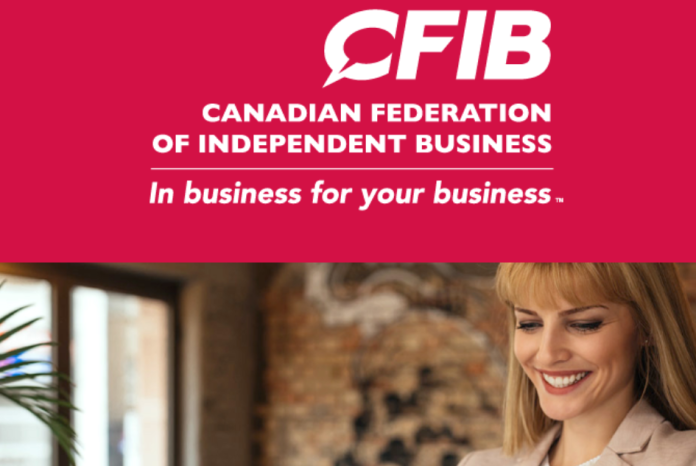With less than a month to go before the federal government tables its budget on April 16, Ottawa needs to be laser-focused on reducing the cost of doing business, says the Canadian Federation of Independent Business (CFIB).
Over three-quarters (77%) of small business owners say addressing rising prices and the cost of doing business should be a top priority for government in 2024, while another 74% want to see government reduce the overall tax burden, finds a recent CFIB survey.
“Rising costs on all fronts are crushing small businesses, and we’re only three months into the new year. While we appreciate that governments are focused on the cost-of-living pressure, we need to see that same vigour applied to costs faced by small businesses,” said Corinne Pohlmann, Executive Vice-President of Advocacy at CFIB. “Business owners can’t keep absorbing the hits without negative consequences for their business. They need meaningful government action on cost relief now.”
Businesses across Canada will see the carbon tax jump to $80 per tonne on April 1. Those in the alcohol production and hospitality industries will also see the annual alcohol excise tax increase by 2%, and the federal government and several provinces are bringing in minimum wage hikes on the same day.
That’s on top of an Employment Insurance (EI) increase and the Canada Pension Plan (CPP) expansion to begin the year. Business contributions to EI have increased by $200 per employee between 2019 and 2023, while the maximum CPP contribution payable has increased by up to $1,005 per employee within the same timeframe.
“While we welcome news that Ottawa is providing much-needed relief to brewers and is capping the annual alcohol excise tax increase on beer, spirits and wine at 2% for two more years, we want to see more concrete action on other tax hikes that are coming in April,” said Christina Santini, CFIB’s director of national affairs.
To alleviate the financial pressure weighing on small businesses, CFIB recommends the federal government:
- Return the $2.5 billion in carbon tax rebates owed to all small businesses, not just certain sectors, and freeze the carbon tax at its current level.
- Lower the federal small business tax rate from 9% to 8%, at least for the next two years.
- Increase the small business deduction threshold (e.g., to $700,000) and index it to inflation going forward.
- Lower Employment Insurance (EI) premiums for smaller employers.
- Eliminate the automatic increase on the alcohol excise tax.
- Introduce a timeline to balance the budget.
- Reduce red tape.
- Introduce measures to help businesses invest in automation (e.g., extend the Accelerated Capital Cost Allowance (ACCA) measures and make immediate expensing permanent) and in training (e.g., SME training credit through EI).
- Introduce measures to help keep and bring more people to the labour market, such as older individuals.
The overall business environment in Canada makes it harder for small firms to operate, let alone compete and grow. In fact, the share of active businesses in November 2023 dropped for the third consecutive month, according to recent data by Statistics Canada. The Office of the Superintendent of Bankruptcy also reported that business insolvencies significantly jumped in January 2024, compared to December 2023 and January 2023.
“It’s important to remember that policies that support small businesses also benefit their employees, clients and our communities,” Pohlmann concluded. “It’s time for government to step up and make it easier to operate and grow a small business in Canada.”
CFIB’s petition calling on the federal government to reduce the cost of doing business has garnered 4,600 signatures since the start of 2024 and counting.
Methodology:
Final results for the Your Voice – December 2023 survey, conducted from December 7-19, 2023, number of respondents = 3,148. For comparison purposes, a probability sample with the same number of respondents would have a margin of error of at most +/-1.7%, 19 times out of 20.
About CFIB
The Canadian Federation of Independent Business (CFIB) is Canada’s largest association of small and medium-sized businesses with 97,000 members across every industry and region. CFIB is dedicated to increasing business owners’ chances of success by driving policy change at all levels of government, providing expert advice and tools, and negotiating exclusive savings. Learn more at cfib.ca.








